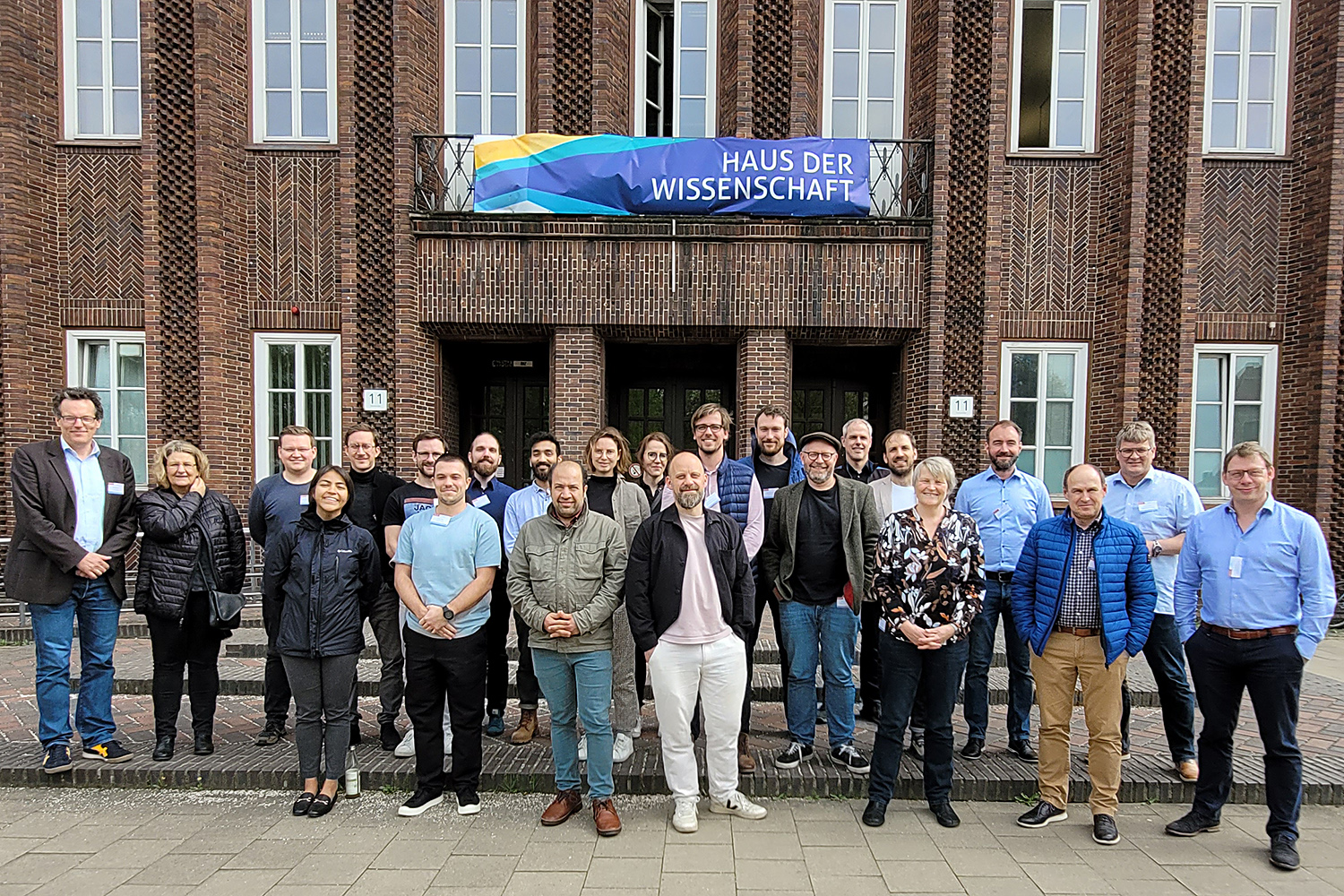METAscales: A new chapter in coastal research
The Leichtweiß-Institute for Hydraulic Engineering and Water Resources (LWI) recently hosted the kick-off meeting of the interdisciplinary project “METAscales“, coordinated by TU Braunschweig, at the Haus der Wissenschaft. Together with researchers from a total of eleven partner institutes involved in German marine research, the LWI team laid the foundations for future collaboration.

The scientists met at the Haus der Wissenschaft to launch the METAscales project. Photo credit: LWI/TU Braunschweig
The “METAscales” project aims to improve the resilience of coastal communities to future extreme events and natural hazards. METAscales is part of the 3rd research mission of the German Marine Research Alliance (DAM), of which TU Braunschweig and Leibniz University Hannover are members via the Coastal Research Centre. In the project, the scientists at the Leichtweiß Institute focus on future-relevant and innovative aspects of climate impact research and on ways to adapt to future natural hazards and extreme events along the coasts.
Dr. Gabriel David, Lena Lankenau and Johanna Kremer from the “Future Urban Coastlines” Junior Research Group are working on the future of urban coastlines and the dynamic adaptation of critical infrastructure such as ports to climate change, taking into account their operational functionality. In addition to basic research, the group works closely with bremenports’ sustainability department to develop practical results with local stakeholders.
Field experiments and risk analyses
In the METAscales project, Professor Kai Schröter and Julius Engelmann are leading important field experiments and risk analyses in the field of hinterland drainage and combined flood risks (compound events). Their focus is on the development and implementation of a model chain for risk analysis and evaluation of adaptation strategies in low-lying coastal zones (LECZ). The data and analysis results obtained will be used to construct risk curves and develop recommendations for adaptation and risk reduction strategies, which will then be fed into the wider discussion and implementation within the project.
Professor Nils Goseberg and Christine Bleidorn are working on the development of adapted, innovative and sustainable coastal protection solutions that take into account local conditions and needs, including novel dike systems and object-based protection concepts. Their approach involves the experimental and analytical investigation of these systems to increase the resilience of coastal landscapes to extreme events. They place particular emphasis on the integration of ecologically valuable and technically effective solutions that can be applied in different coastal scenarios.
During the first meeting, the 14 working groups were able to gain insights into their respective research areas and identify collaborative work for future interdisciplinary research to effectively address the multiple challenges posed by extreme marine events.
